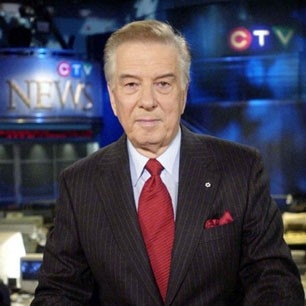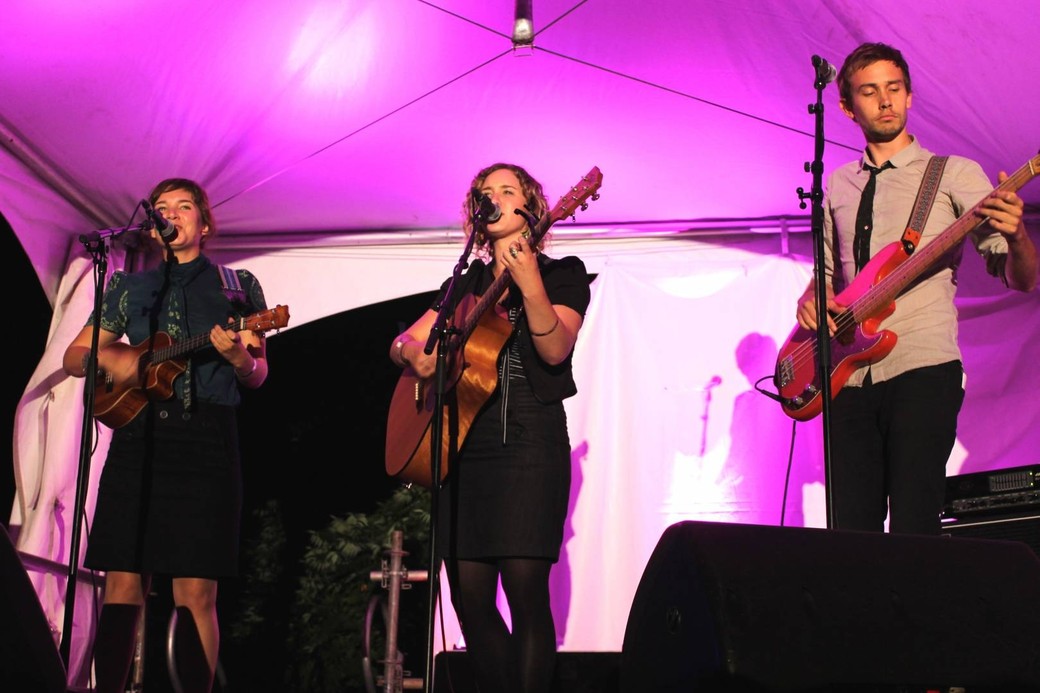
Well, That’s The Kind of Life It’s Been — Lloyd Robertson at the Ottawa Writers Festival
On October 26, Knox Presbyterian was filled with people excited to once again hear the familiar voice of former CTV News chief anchor Lloyd Robertson. Robertson appeared to do a talk about his impressive career as the longest-serving news anchor in Canadian and international history. Over his 59-year career in broadcasting, Robertson has covered Expo 67, the fall of the Berlin Wall, the death of Princess Dianna, Terry Fox’s Marathon of Hope, the September 11th World Trade Centre attacks and the War in Afghanistan, as well as numerous elections, referendums and Olympic events. Robertson has also won the Order of Canada and was the first journalist to be inducted into Canada’s Walk of Fame.
In spite of his impressive accolades, Robertson focused his talk on his own personal journey. He joked about being in a church as a “slightly lapsed Presbyterian.” Robertson then read an excerpt from his new book, The Kind of Life It’s Been (HarperCollins Canada), which is about the trials of growing up with a mother who suffered from an undiagnosed mental illness and a father who had severe stomach disorders. Robertson shared personal anecdotes about his “dreary home life” and the images of hospitals “forever etched in [his] mind.”
Despite the morose aspects of his upbringing, Robertson explained that his early life experiences gave him a deep compassion for the sick and unhealthy, and a “lifelong commitment to help those with mental illnesses.” On stage, he recalled one of the most memorable things his father said to him about the mentally ill: “You’ve got to learn, boy, that these people deserve a life too.” Those words have stuck with Robertson to this day, influencing him throughout his lengthy career to approach all those he encounters with sympathy and compassion, regardless of their physical or mental predispositions. Robertson’s book is dedicated to his father, who taught him the importance of wisdom and compassion.
Early on in his life, Robertson felt a pull towards broadcasting. “News was always an interest of mine,” he told the audience. “As a child, I knew the names of all the local radio personalities.” In school, Robertson asked his teachers if he could read the public announcements every day, and later became the narrator for a number of school plays to work on his voice projection. He started his broadcasting career working for his local Stratford radio station, CJCS, but quickly moved up to CJOY in Guelph. He started working for the CBC in Windsor, but was eager to move to Toronto, which was “the apex of quality in [the] industry at the time. One you’d got there, you’d made it.”
Robertson worked as an announcer for CBC in Toronto until he began encountering difficulties with the corporation. Not being allowed to edit his articles, Robertson became frustrated because he “could report, but couldn’t write.” Eventually, he was offered a new position at CTV, but was still conflicted over leaving, due to his loyalty to CBC and its broadcasting mission. However, CTV gave him his first opportunity to go out in the field to write and broadcast his own reports, and Robertson stuck with CTV for 35 years.
Robertson talked about the challenges of maintaining a “public personality” while on the air, which sometimes conflicted with his true feelings on a subject. Robertson talked about the difficulty of reporting on 9/11, which was one of the most memorable days of his career. Robertson recalled being woken up early in the morning by a call from his boss, saying “Get your pants on, Robertson, turn on the TV and see what’s going on.” He rushed to work and got on the air to report on the attack, trying to channel what Peter Jennings described to him as “an absence of emotion” in order to keep composed. “There are some moments when you have to remain composed,” Robertson said, “but you instinctively know when you reach your audience emotionally.” Robertson remained emotionally stoic in public until three days later, when he attended the memorial service on Parliament Hill. Robertson described the absolute silence of the crowd and how it caused him to weep for the first time since the attack.
After a lengthy career working in radio and television, Robertson retired in 2011. As he described it: “I wanted to get out while the voice was intact and the looks were relatively still intact.” Robertson described feeling simultaneously grateful and saddened on his last day at CTV. “There was a sense of emptiness during my last broadcast, but I certainly don’t miss being there at 11 o’clock every night.”
Reflecting on his career, Robertson concluded that there was very little he would change. He regrets never attending university, yet “working in news, in a lot of ways, was like getting a Liberal Arts Degree. I was never held back in my career because I continued to learn on the job.” He always felt at home in broadcasting, and turned down the offer of a Senate seat. “I had fought so hard to be this newsperson who spoke from outside all the political parties… I wanted to maintain the independent voice of the service.”
For Robertson, the independence that comes from journalism is essential. He briefly discussed the problems of the all-news channels in the US and how they confuse people by intermingling talk shows with news broadcasts. According to Robertson, politicians and pundits are given “the bias of their choice,” leading to polarization full of “rants, but no talking.” Despite this growing trend, Robertson maintains hope in the tradition of the professional news broadcast. “There will always be room for the professionals. People always need reliable sources to know what is really going on. People are smart enough to know that what they get [on all news channels and the internet] is just gossip.”
Robertson’s memoir, The Kind of Life It’s Been, is now available in bookstores everywhere.










